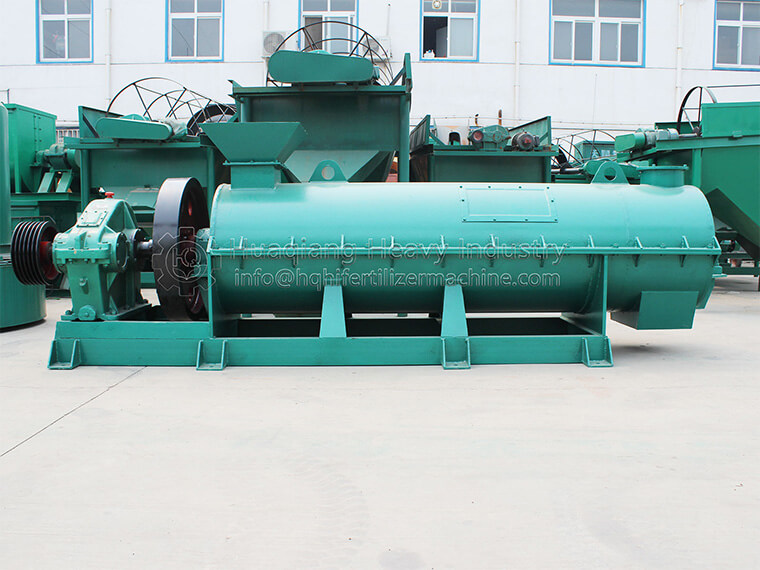Granulation process and characteristics of manure processing organic fertilizer equipment
Cow manure, pig manure, and chicken manure, duck manure belong to animal manure and are one of the excellent raw materials for making organic fertilizers. The nutrient content in livestock and poultry manure is very high, which plays a significant role in improving soil fertility. However, primitive animal manure cannot be directly applied to the soil because it contains a large amount of harmful bacteria. If applied directly to the soil without killing it, it will cause soil pollution. Moreover, most of the nutrients need to be decomposed before they can be absorbed by the soil. If fermented in the field, the resulting high temperature can have an impact on crops and cause seedlings to burn to death.
The equipment for processing cow manure into organic fertilizer is a complete set of equipment that uses cow manure as raw material to process organic fertilizer. The process of cow manure processing organic fertilizer equipment uses crops such as straw and rice bran as filling materials, and then sprinkles biological bacterial agents. It is decomposed and fermented through an organic fertilizer composting machine, flipped and thrown once every 1-2 days, and can be fully decomposed within 7-10 days to produce national standard organic fertilizer materials.
For the production of granular organic fertilizers using equipment for processing organic fertilizers such as cow manure and pig manure with an annual output of 10000 to 30000 tons, it is necessary to achieve a production capacity of 5-15t/h and use the disc granulation process. The moisture content of organic fertilizer products is 20%, the average moisture content of livestock and poultry manure is calculated as 60-80%, the moisture content of auxiliary materials is calculated as 30%, and the dry matter consumption rate during the composting process is calculated as 8%. Auxiliary materials mainly include weathered coal, oil shale, straw, edible mushroom waste base material, sawdust, pharmaceutical residue, sludge, etc.
Characteristics of manure processing organic fertilizer equipment: advanced technology, scientific and reasonable, compact process layout, energy conservation and consumption reduction, stable operation, no three emissions, reliable operation, wide adaptability of raw materials, and convenient maintenance. Adapting to various ratios of organic compound fertilizers, bio organic fertilizers, urban sludge, household waste organic fertilizers, etc., it fills the domestic gap and ranks at the leading level in China. It is a promotion project of practical environmental protection technology in the country
.jpg)
.jpg)




.jpg)

.jpg)